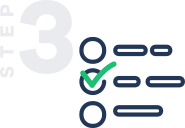› Industries › Healthcare & Seniors Centers




🏥 Healthcare & senior centers often need financing to cover upgrades, staff, supplies, and delayed insurance payments.
💸 Business loans offer flexible funding, including SBA loans, equipment financing, and working capital options.
🚀 Fast funding available—many loan types can be approved and funded in 1–3 business days.
📉 Bad credit? No problem—alternative lenders offer options for businesses with lower scores or newer operations.
💼 Loan uses include hiring staff, renovating facilities, upgrading medical equipment, and expanding services.
🧾 Minimum qualifications: 550+ credit score, 6+ months in business, $75K+ annual revenue.
📈 Timely payments build business credit, helping you qualify for better terms in the future.
⚠️ Watch out for drawbacks like high interest rates, collateral requirements, or long approval times for SBA loans.
Advancements in medicine and wellness have led to longer life expectancies and increased demand for senior care. As the senior population grows, healthcare and assisted living facilities must evolve to meet new challenges and expectations. From updating facilities and equipment to expanding staff and services, senior care business owners face ongoing financial pressure to deliver quality care while maintaining profitability.
Unfortunately, consistent cash flow is often a challenge. Delayed insurance reimbursements, rising operating expenses, and the need for continual upgrades can strain even the most well-run businesses. That’s why many senior care centers turn to business loans to bridge the gap, expand operations, and improve patient services.
United Capital Source has extensive experience helping small businesses, including senior care and medical facilities, secure financing that meets their unique needs. Our lender network offers a range of funding options with flexible terms, fast approvals, and tailored support.

United Capital Source can facilitate accounts receivable factoring for senior centers looking to stay current on bills, upgrade facilities, and increase staff.
With this type of working capital loan, the business lender purchases unpaid receivables for a discount price. You can do this immediately after an insurance payment is not received by its expected date. So, instead of waiting for an unknown amount of time for the payment to come in, the business lender pays you just a few business days after your application is approved. It is also now up to the business lender to collect from the insurance provider.
When this payment is finally collected, you get paid whatever was missing from the first payment, minus a percentage. You lose a small portion of income, but this is nowhere near as harmful as the many dangers of waiting too long for payments. Profits will not shrink, bills will not go unpaid, and you will actually have the means to make improvements the moment they become necessary. This is vital for senior centers because just a slight delay with one such improvement can jeopardize multiple residents’ health or prevent them from becoming residents altogether. Outdated living spaces cannot be used, sufficient staff is needed at all times, and supplies must be delivered on a cyclical, timely basis.
Accounts receivable factoring is also just one of several business funding programs that could make sense for your senior center’s financial circumstances. As a standard, short-term working capital loan, other options can give you most of the aforementioned benefits. Some UCS clients solely take out working capital loans to pay their suppliers upfront or well ahead of due dates. This keeps inventory stocked throughout the year and makes them eligible for discounts.
Another attractive option for short-term investments is a business line of credit. A senior center could use the funds to increase staff, upgrade furniture, cover a recurring expense, and then pay off the balance with insurance payments or revenue from new residents. Apply now to see how much you qualify for!
Healthcare and senior center business loans are specialized small business loans that provide the working capital necessary to manage day-to-day operations and fund expansion. These financing options are designed for facilities such as assisted living centers, rehabilitation facilities, hospice care providers, and other medical or elder care businesses.
Access to working capital is crucial for senior care business operations and can be secured through various financing products. Senior care facilities can secure financing for everyday inventory and payroll. Senior care business owners can use funding to cover daily operational needs such as hiring staff, purchasing supplies, or upgrading equipment.
Some lenders offer specific loan products tailored to the needs of senior care and assisted living facilities. These loans can help senior care businesses manage delayed insurance payments, cover operating expenses, and capitalize on new opportunities. However, senior care facilities often face challenges in securing the necessary funding for operations and expansions, especially when relying solely on traditional financing options.
Business loans for Healthcare & Senior Centers come in the form of:
Financing options for senior care facilities can include business loans for various purposes, such as covering short-term costs or funding long-term projects. Business loans can cover purchases like working capital, equipment, or real estate, depending on the type of loan and your business goals.
For example, equipment loans specifically designed for senior care facilities can help purchase or refinance necessary medical equipment or furniture to enhance patient comfort and comply with healthcare standards. Accounts receivable factoring is another effective tool that allows healthcare centers to sell unpaid insurance receivables to a lender in exchange for quick access to cash.
SBA loans can offer favorable terms for senior care business owners seeking growth capital. SBA loans are designed to help small businesses manage their cash flow and support growth. These federally backed loans are ideal for purchasing commercial real estate, acquiring new equipment, or refinancing high-interest business debt.
Whether your goal is to invest in new facilities, improve patient care, or expand service offerings, a loan tailored to your senior care business can make it happen.
| FUNDING TYPES | MAX AMOUNTS | STARTING COSTS | SPEED |
|---|---|---|---|
| Merchant Cash Advances | $5k – $5m | Starting at 1-6% p/mo | 1-2 business days |
| SBA Loan | $50k - $10m | Starting at Prime Rate + 1% | 4 -12 weeks |
| Business Term Loan | $5k - $10m | Starting at 1-4% p/mo | 1-3 business days |
| Business Line of Credit | $1k - $1m | Starting at 1% p/mo | 1-3 business days |
| Receivables/Invoice Financing | $10k - $25m | Starting at 1% p/mo | 1-2 weeks |
| Equipment Financing | Up to $10m per piece | Starting at Prime Rate + 1% | 3 -10+ business days |
| Revenue Based Financing | $10K – $5m | Starting at 1-6% p/mo | 1-2 business days |
Healthcare and senior center business loans can provide consistent access to cash when your business operates on unpredictable payment cycles. With flexible loan options available, your facility can stay ahead of patient needs and make upgrades without delay. Loans can also enable senior care business owners to invest in staffing, medical equipment, and operational improvements without depleting their personal and business finances.
Another significant advantage is that business loans can be tailored to match how your facility earns revenue, whether through private pay, Medicaid, Medicare, or insurance providers. Business owners can maintain service quality, boost patient satisfaction, and position their practice or facility for sustainable growth.
For growing practices, SBA loan options offer some of the lowest interest rates and longest repayment terms available. Additionally, financing enables senior care providers to purchase commercial real estate or expand into new locations with confidence.
While business loans offer numerous benefits, they also present challenges. Interest rates and fees vary by lender and may be higher for borrowers with poor credit or those with newer businesses. Some financing options may require collateral, especially for large loan amounts or commercial real estate purchases.
For senior care facilities relying on insurance payments, delays in reimbursements can make it challenging to manage loan payments without falling behind. In addition, strict eligibility requirements from traditional lenders, such as requiring a good credit score, detailed financial documentation, and at least two years of business experience, can prevent some qualified businesses from securing funding through conventional means.
Even SBA loans, though helpful, require a sound business plan and considerable documentation, which can be time-consuming to prepare.
Pros:
Cons:
The amount of paperwork required depends on the product you choose. Funds can be approved and distributed for most products within 1-3 business days. Here’s how to apply:
The first step is choosing the most sensible solution to the problem at hand. This should require some research, as each product is designed for different types of expenses and cash flow cycles. Are you looking to cover a short-term or long-term expense? Is demand expected to increase or decrease in the coming months?
Considering the funds’ purpose will also help us determine the correct borrowing and terms for your needs.
Here are the documents and information required for Healthcare & Senior Center Business Loans:
SBA loans require additional documents and information, such as financial statements. To learn what’s needed for the SBA-backed loans, visit our SBA loan page.
You can begin the application process by calling us or filling out our one-page online application. Either way, you’ll be asked to enter the information from the previous section along with your desired funding amount.
Once you apply, a representative will contact you to explain the repayment structure, rates, and terms of your available options. This way, you won’t have to worry about any surprises or hidden fees during repayment.
If you’re approved, we’ll contact you within 24 hours. After closing, funds for most business financing products should appear in your bank account within 24 hours to one week.
Your business loan isn’t just a way to get financing for your business. It’s also an excellent opportunity to start building (or improving) your credit.
Regardless of the type of business loan you get, make all your required payments on time and in full. If you get a business credit line or another form of revolving credit, keep your balance below the credit limit.
Consistently making your business financing payments on time and in full will positively impact your credit. And that means preferred rates and terms when you next need business financing.
If your application is declined, it’s possible that you applied for the wrong product to meet your cash flow needs. We would likely recommend a different product with a less hazardous repayment structure in this case.
Your application might also be declined if it is determined that you cannot afford to take on more debt at this time.
If your credit score is holding you back from accessing financing, consider working with a reputable credit repair service to raise your scores.
Senior care owners may utilize loans to hire quality staff and maintain facilities, which are essential for business success. These funds can also be used to renovate outdated spaces, invest in wellness programs, or upgrade medical and monitoring equipment.
Other uses include purchasing medical supplies, improving accessibility, debt refinancing, or expanding service offerings to accommodate more residents. For senior care businesses interested in property acquisition, SBA 7(a) loans can finance the purchase of owner-occupied commercial real estate for medical centers. SBA 504 loans offer lower interest rates compared to SBA 7(a) loans, making them a better option for commercial real estate financing.
Yes, the Small Business Administration (SBA) offers loan options to help senior care and healthcare businesses meet various needs. An SBA loan can provide loan amounts from $100,000 to $5,000,000, depending on eligibility and use.
SBA loans offer low down payment requirements and long loan terms, typically ranging from 10 to 25 years. SBA loans can help start a new business and purchase or refinance owner-occupied real estate and business equipment. The SBA 7(a) loan is the most popular loan offering, used for a wide variety of business purposes. The maximum loan amount for an SBA 7(a) loan is $5 million. SBA 7(a) loans provide a wide variety of choices during the loan application process.
SBA 7(a) loans can be used for refinancing business debt at unreasonable terms. Medical centers can use SBA 7(a) loans to cover nearly all new construction costs. The SBA 504 loan is commonly used for financing fixed assets and real estate needs.
Eligibility for an SBA loan typically requires a good credit score and a sound business plan. The loan must be used for a business purpose, as per SBA guidelines. SBA loans do not have prepayment penalties for loan terms of 15 years or less.
SBA loans can be offered by a variety of lenders, including banks and credit unions. Your healthcare center must be a for-profit business to qualify.
Senior care business owners can access financing from various sources. Traditional lenders, such as banks and credit unions, often offer lower interest rates but have strict eligibility requirements, lengthy approval processes, and extended funding timelines.
Private lenders and credit unions may offer more flexible terms compared to large banks for senior care financing. The application process for medical practice loans designed for senior care businesses can often be expedited compared to traditional loans.
Alternative lenders, such as those in the United Capital Source network, provide streamlined applications, less stringent credit requirements, and faster funding, often in as little as 24–72 hours.
Yes, there are bad credit business loan options available for senior care facilities that may not meet the credit approval standards of traditional banks. Lenders in the United Capital Source network can help facilities secure financing even if they’ve faced business debt challenges or personal credit issues.
These financing options can include short-term working capital loans, equipment financing, or accounts receivable factoring, which can provide fast cash flow solutions. While rates may be higher than those of SBA or traditional loans, these products offer a lifeline to healthcare businesses that need funding to stabilize operations or invest in improvements.


